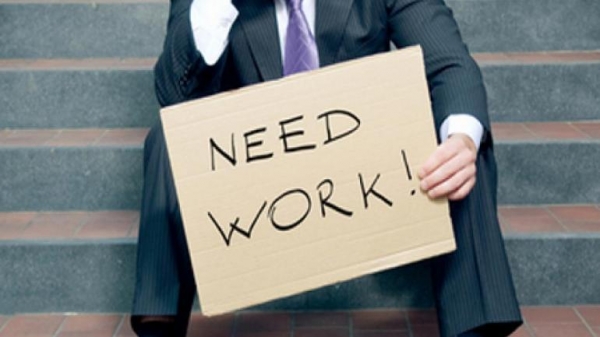Millions of jobs could be permanently lost in reallocation shock
The hope is that the stimulus waves doled out by governments and central banks should eventually buoy economies and spark a revival in hiring. Furloughed or red
- by B2B Desk 2020-06-15 09:12:30
William Lovely, Twenty-year-old, used to work at Jason’s Deli in Virginia Beach, delivering catering orders to surrounding businesses. Now, thanks to the coronavirus, he’s struggling to pay his bills.
Laid off in March, went out of the ordinary hours and paid to go to UberEats or Instacart, earning up to $ 100 some days, but often coming home almost nothing. As the restaurant tries to reopen it slowly, Lovely reckons that the best he can hope for is a part-time position, which requires him to keep his second job if he’s going to meet his expenses.
He said, " My job stopped, but the bills don’t."
Lovely experience goes to the heart of the global economy’s dilemma as it gradually emerges from the virus-enforced lockdown and the unprecedented recession: How many millions of the millions of lost jobs are gone for good?

The hope is that the stimulus waves doled out by governments and central banks should eventually buoy economies and spark a revival in hiring. Furloughed or redundant workers would then return to their employers.
However, the risk is that the pandemic causes a "reallocation shock" in which firms and even entire sectors suffer lasting damage. The lost jobs are not returned, and unemployment remains high. This would force workers to retrain or relocate, which is difficult, and governments have to do more than just try to get out of trouble.
A theme hit last week by Federal Reserve Chairman Jerome Powell as central bankers in the United States forecast leaving interest rates will remain close to zero until 2022, in part due to higher unemployment at the highest level since the Great Depression.
Powell, who will testify before Congress on economic prospects this week, said there will be "many millions of people who will not be able to return to their old work." "In fact, there may not be work in this industry for some time."
Unfortunately, new research from Bloomberg Economics reckons 30% of job losses in the U.S. from February to May are the result of a reassuring shock. The analysis, based on the relationship between employment, dismissal, vacancies, and unemployment, indicates that the labor market will recover quickly at first, but will stabilize thereafter as millions of unemployed continue to exist.
Workers in the hospitality industry, such as Lovely's, are among the most at risk, along with retail, entertainment, education, and health. In many cases, the pandemic will increase the challenge for brick and mortar companies facing e-commerce platforms such as Amazon.com.Inc, accelerating the pre-crisis trend.

According to Bloomberg economists, financial markets are already pricing in the risk. Equity market returns across different sectors and companies of different sizes suggest that investors are betting on a change in profits between companies similar to those they experienced after the 2008 global financial crisis. Lost profits spell lost jobs.
Other studies carry similar warnings. Research published by the Becker Friedman Institute at the University of Chicago has estimated that 42% of recent layoffs in the United States will be permanent.
" There’s a massive reallocation shock," said Nicholas Blum, Stanford University economics professor and one of the study's authors. The recession "affects different sectors differently. Some benefits and others decrease."
This phenomenon puts governments under pressure to craft policies that help viable firms survive, and workers move to various jobs, but ideally, it does not support companies that are no longer sustainable and simply drain resources.
The Peterson Institute for International Economics said in a study last week that the unique impact of the virus means that governments may need to do more to keep jobs and protect workers more than they do in a natural recession. They recommend subsidizing wages to create incentives to resume production and the continuation of credit guarantees for new loans.
Bloomberg Economics's research highlights the challenge. It was found that about 50% of job losses in the USA United States of America come from a combination of lockdown and weak demand, 30% from reallocation shock, and 20% of high unemployment benefits that encourage workers to stay at home. Different causes of job losses require different and sometimes conflicting political responses.

One of the main concerns is that with the continued loss of temporary jobs, skills are lost and unemployment increases, concept economists call a slowdown.
In this context, labor market experts say that measures must not stop to improve safety nets, but also ensure that people have the right skills. Last week, the Organization for Economic Cooperation and Development called for public investment in theater training.
Part of that is related to preparing workers for the next stage of the technology revolution and whatever turmoil it entails.
This process can now be accelerated as companies, from manufacturers to retailers, adapt to the post-virus world, isolating more people from safe work.
The potential for structural changes has also given rise to ideas that once seemed to be not an initiative, from labor guarantees to comprehensive income.
In the United States, a last resort business idea got support from some Democrats early in the initial election cycle. Economists who worked on releases of the plan, including Darrick Hamilton at the University of Ohio, sought to revive her during the crash of the coronavirus, citing an example of federal employment programs during the new deal in the 1930s.
"The pandemic has revealed the shortcomings that are already in place for workers and the economy," said Charan Buru, general secretary of the International Trade Union Confederation. The "new normal" requires a new social contract between governments and their citizens with the support of the international community.
Source: Economics Times
Also Read: Centre unlikely to reimpose lockdown; PM may advise CMs not to lower guard
POPULAR POSTS
Loan EMIs to Drop as RBI Slashes Repo Rate - Full MPC December 2025 Highlights
by Shan, 2025-12-05 11:49:44
Zoho Mail vs Gmail (2025): Which Email Platform Is Best for Businesses, Startups, and Students?
by Shan, 2025-10-09 12:17:26
PM Modi Launches GST Bachat Utsav: Lower Taxes, More Savings for Every Indian Household
by Shan, 2025-09-24 12:20:59
$100K H-1B Visa Fee Explained: Trump’s New Rule, Clarifications & Impact on Indian Tech Workers
by Shan, 2025-09-22 10:11:03
India-US Trade Deal Soon? Chief US Negotiator Arrives in Delhi as Talks Set to Begin Tomorrow
by Shan, 2025-09-15 11:54:28
Modi Meets Xi: Trump’s Tariffs, Strategic Autonomy, and the Future of Asia’s Power Balance
by Shan, 2025-09-03 06:40:06
Google Claims Gemini AI Uses Just ‘Five Drops of Water’ Per Prompt, Sparks Debate
by Shan, 2025-08-22 12:34:27
RECENTLY PUBLISHED

Pine Labs IPO 2025: Listing Date, Grey Market Premium, and Expert Outlook
- by Shan, 2025-11-05 09:57:07

The Agentic Revolution: Why Salesforce Is Betting Its Future on AI Agents
- by Shan, 2025-11-05 10:29:23

Top 10 Insurance Companies in India 2026: Life, Health, and General Insurance Leaders Explained
- by Shan, 2025-10-30 10:06:42

OpenAI Offers ChatGPT Go Free in India: What’s Behind This Big AI Giveaway?
- by Shan, 2025-10-28 12:19:11

Best Silver Investment Platforms for 2025: From CFDs to Digital Vaults Explained
- by Shan, 2025-10-23 12:22:46





 Subscribe now
Subscribe now 